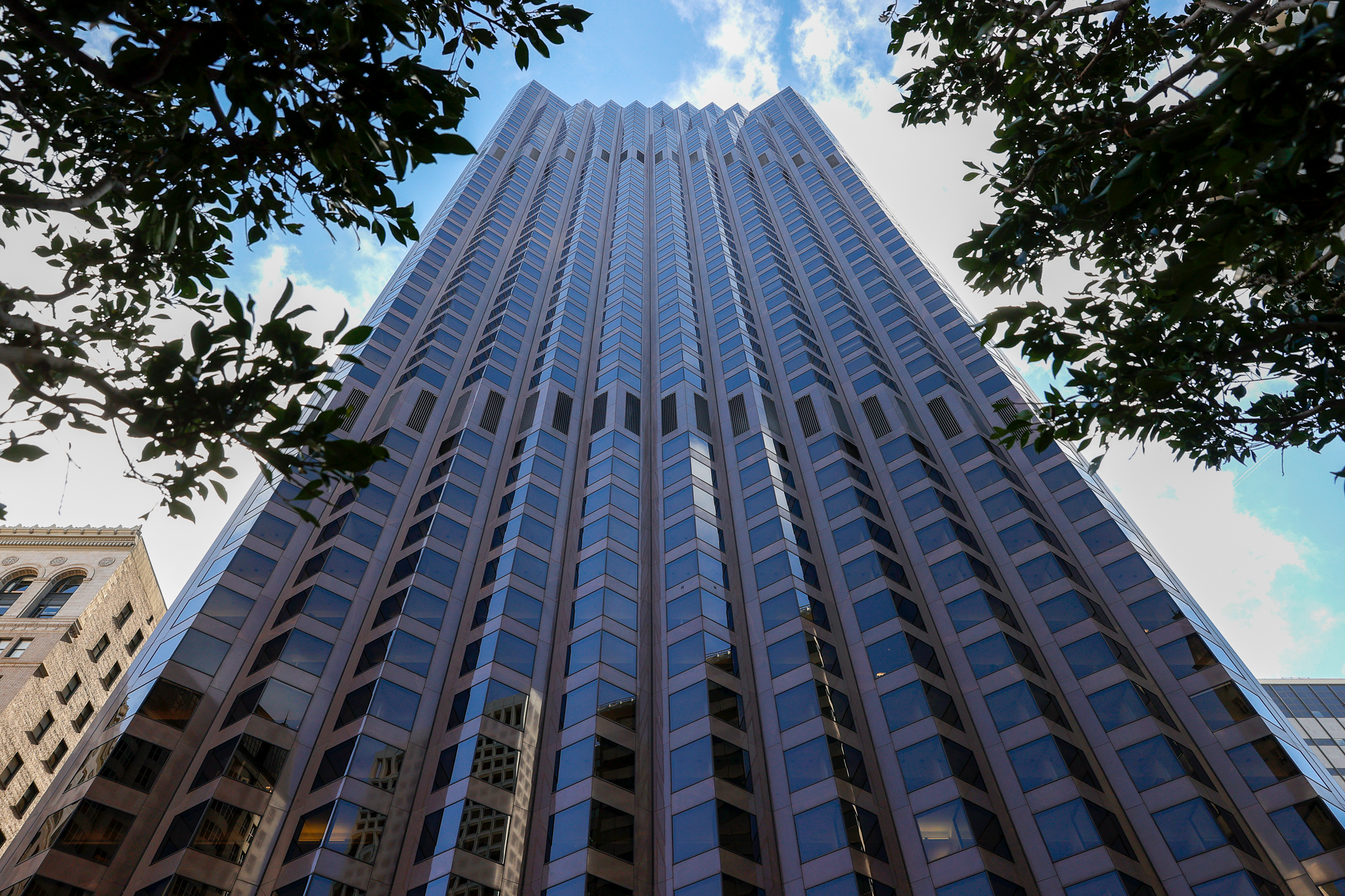The latest signs of distress in San Francisco’s office market include a default on a $1.7 billion mortgage and increasing issues at the only office building in the city co-owned by former President Donald Trump.
Columbia Property Trust—owned by investment management firm Pimco—defaulted on a loan for seven commercial office buildings amid broader turmoil in the market. The single most valuable asset in that portfolio is 650 California St., a 34-story office building in the Financial District. The portfolio also includes 201 California St. in San Francisco, as well as properties in New York, Boston and Jersey City.
“We, like most office owners, are addressing the unique and unprecedented challenges currently facing our asset class and customer base,” said a Columbia Property Trust spokesperson in a statement. “We have engaged with our lenders on a restructuring of our loan on seven properties within our larger national portfolio.”
The mortgage issues faced by Columbia are part of a larger shift within the commercial real estate industry due to remote work, meaning lower demand for leases and hollowed-out office buildings. That puts landlords in a tenuous financial position with declining cash flow as their loans come due.
“You’re really talking about a nationwide problem. The biggest story is that people just don’t need as much space,” said Manus Clancy, senior managing director at commercial real estate data company Trepp. “The number of firms increasing their square footage versus decreasing feels like it’s running about 9 to 1.”
Those structural factors mean less appetite from lenders to refinance properties. Clancy said in order to get financing in the current office market, the property has to be exceptional, which typically means a recently built building, high-quality amenities and high demand from tenants.
But Columbia’s building portfolio has another major anchor weighing it down: Twitter, which allegedly began skipping out on rent payments after Elon Musk took over the company last year.
Twitter is one of the biggest tenants across the seven properties in the portfolio, leasing space at 650 California St. and 245-249 W. 17th St. in New York. Columbia has already filed suit against the social media company for failing to pay rent.
Bloomberg, which first reported on the default, noted that Columbia’s mortgage has “floating-rate debt,” meaning interest rates that are variable. As federal interest rates have risen in an effort to tamp down inflation, these loans become much more expensive to maintain.
Trump’s Stake
One example of how higher interest rates have damaged the financial stability of these buildings can be seen in 555 California St., 70% of which is owned by Vornado Realty Trust with the remainder owned by the Trump Organization.
The former Bank of America headquarters was recently placed on a special servicing watchlist, indicating that loan holders are keeping a close eye on the office complex.
Clancy said that, based on Trepp’s data, the $1.2 billion loan for the office complex was initially made in 2021 with a maturity date set in 2023. The loan holders have a series of five 12-month extension options, which pushes out their maturity date to 2028.
In 2021, Vornado and Trump likely purchased an interest rate cap, essentially an insurance measure that guards the property owner from sharp interest rate hikes. But that only lasted for the first two years of the loan, Clancy said.
Now, as that term ends, the cost for insuring themselves against another rate hike has risen exponentially.
“Some borrowers are coming to the conclusion that between the slowing economy, tenants leaving and higher interest costs, they’re out,” Clancy said. “It’s not worth sending good money after bad.”
While the building is nearly fully leased, Clancy said many of those leases are slated to expire in the next three years. Morgan Stanley, for example, recently extended its lease, but only until 2028.
“If you go to your boss and say I made a $1 billion loan to Vornado on a property in San Francisco where sublease space is plentiful, tenants are giving back space and leases are averaging three or four years in length, I think your boss would tell you to start getting your resumé together,” Clancy said.
